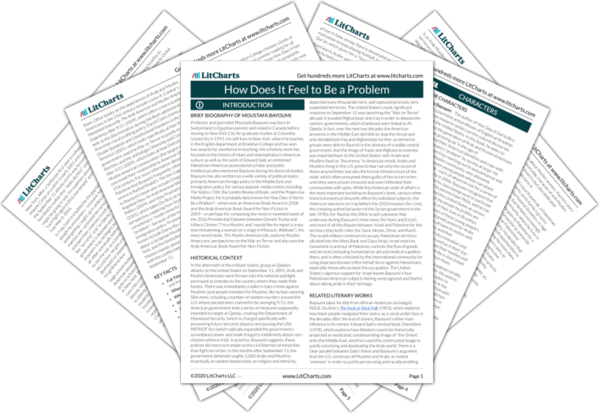Previous
War on Terror
|
Previous
War on Terror
|
W.E.B. Du Bois Term Analysis |
Next
West Bank
|
The last several years have taken their toll. I ask him about life after September 11 for Arab Americans. “We're the new blacks,” he says. “You know that, right?”
